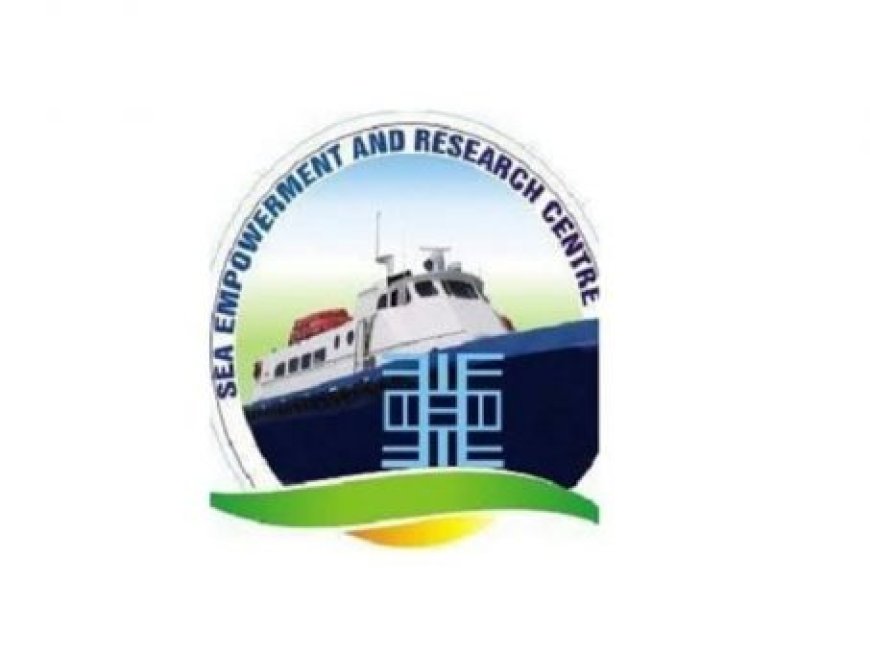‘Nigeria losing N900b annually to trade inefficiencies’

The country is losing an estimated N500 billion to N900 billion every year in unrealised revenue, duplication, and productivity losses due to the continued absence of a functional National Single Window (NSW) for trade facilitation, the Sea Empowerment and Research Center (SEREC) has revealed.
The maritime research and policy advocacy group said the staggering losses stem from fragmented digital systems, overlapping agency functions, and weak coordination among government institutions, factors that continue to make neighbouring ports in Cotonou, Lome, and Tema more competitive.
SEREC made this known in its latest bulletin titled “Nigeria’s Path Toward Seamless Cargo Clearance – The Imperative of a Functional National Single Window”.
The organisation described the planned launch of the NSW by January 2026 as a potential turning point for Nigeria’s trade efficiency and customs modernisation drive.
According to SEREC, the NSW initiative, spearheaded by the National Trade Facilitation Committee (NTFC) and the Nigeria Customs Service (NCS), could mark Nigeria’s transition into a globally competitive logistics hub, but only if governance integrity, interoperability, and inclusivity are prioritised over bureaucratic dominance. “The absence of a unified Single Window continues to drain the economy of between N500 billion and N900 billion annually through inefficiency, administrative duplication, and lost productivity,”
“Nigeria cannot afford to lag behind in the digital integration race when smaller ports in the subregion are already ahead,” SEREC warned.
The group noted that while Nigeria has transitioned through multiple electronic trade systems — from Asycuda to PAAR/NICIS I & II, and now the B’Odogwu platform — none has delivered the long-promised seamless cargo clearance process. It said persistent system downtimes, weak inter-agency collaboration, and limited stakeholder consultation have hindered progress.
Drawing lessons from Singapore’s globally acclaimed TradeNet system, managed by CrimsonLogic, SEREC urged the government to develop a homegrown, integrated electronic trade network tailored to Nigeria’s operational realities. It said the Singapore model succeeded because of institutional coordination, trust, and shared commitment to trade facilitation rather than revenue competition.SEREC commended the Federal Government for establishing an Independent National Single Window Secretariat, describing it as a step in the right direction, but warned that its oversight must remain neutral and transparent to prevent sectoral dominance.
It called for clearly defined engagement rules, measurable key performance indicators (KPIs), and a focus on trade facilitation outcomes rather than just revenue collection. The group also urged a shift away from overreliance on foreign consultants toward empowering local experts who understand Nigeria’s Cost, Insurance and Freight (CIF) trade model.
Highlighting the economic stakes, SEREC presented verified fiscal data showing Nigeria Customs’ remarkable revenue growth — from N3.2 trillion in 2023 to N6.105 trillion in 2024, representing a 90.4 per cent increase. As of mid-2025, Customs had already collected N3.68 trillion, or 55.9 per cent of its N6.58 trillion target, which was later revised upward to N10 trillion by the National Assembly.
However, the group stressed that despite these figures, “efficiency leakages, compliance gaps, and bureaucratic overlaps” still erode the full potential of customs operations, especially amid low import volumes.
According to SEREC’s projections, a fully functional NSW could boost Customs revenue by 10–20 per cent annually, generating between N600 billion and N1.2 trillion in additional income; reduce cargo dwell time by 35–45 per cent, saving the private sector an estimated N300–N400 billion annually in logistics and demurrage costs; and cut overall trade transaction costs by 20–25 per cent, significantly improving the country’s global logistics competitiveness ranking.
In addition, SEREC estimated that a robust NSW ecosystem could create over 100,000 direct and indirect jobs in ICT, logistics, and data management, while attracting $2–$3 billion in private sector investment within five years. This, it said, could expand the maritime sector’s GDP contribution by up to 1.5 per cent
Despite these projections, the group cautioned that the success of the NSW would depend not on technological sophistication but on governance integrity, inter-agency coordination, and genuine stakeholder inclusiveness.
“The success of Nigeria’s trade facilitation agenda hinges not on the sophistication of its software but on the integrity of its governance and the inclusivity of its design. The National Single Window must be pursued as a national economic reform — not merely an automation project,” it stated.
The group urged all stakeholders, including government agencies, freight forwarders, terminal operators, shipping lines, and the trading community, to commit to a culture of **efficiency, transparency, and mutual trust.
“Trade facilitation must come first; revenue will follow efficiency. Only then can Nigeria’s ports become truly competitive within the West African subregion,” it added.
SEREC reaffirmed its support for the National Trade Facilitation Committee (NTFC) and the NCS, urging them to ensure that the B’Odogwu platform evolves into a durable and interoperable digital foundation capable of sustaining the forthcoming NSW regime.
‘Nigeria losing N900b annually to trade inefficiencies’ - The Nation Newspaper









